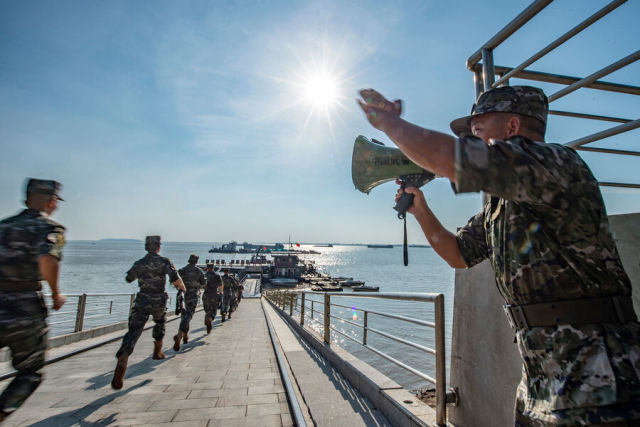This is happening against the background of large-scale exercises around Taiwan
Top Chinese officials have been ignoring all attempts by American colleagues to contact them this week, Politico reports. U.S. officials fear that this will lead to accidents and miscalculations in the Taiwan region, which could escalate into a full-scale conflict. After the visit of the Speaker of the House of Representatives Nancy Pelosi, China launched large-scale exercises - in several zones around Taiwan at once.
The threat of a "full-scale conflict"
The appeals of the Pentagon leaders to China remain unanswered amid the Taiwan crisis, Politico reports. Officials and experts interviewed by the publication believe that Beijing's silence is a "dangerous step."
"This week, top Chinese military officials did not respond to numerous calls from their American colleagues, as a crisis broke out in the Pacific region due to the visit of the Speaker of the House of Representatives Nancy Pelosi to Taiwan," the article says, citing sources.
The authors noted that, "hiding" from Defense Secretary Lloyd Austin and Chairman of the Joint Chiefs of Staff General Mark Milley, China "continues to launch missiles and deploy warships and aircraft during unprecedented military exercises around Taiwan." Officials and experts told Politico that China's silence is "a short-sighted and reckless step that increases the risk of escalation of an already tense situation."
"US military leaders seek to maintain open lines of communication even with potential adversaries such as China in order to prevent accidents and other miscalculations that could escalate into a full-scale conflict," the article says.
"Avoid incidents"
According to the Pentagon, Millie's last conversation with her Chinese counterpart, the chief of the Joint Staff, General Li Zocheng, took place on July 7. By video link, they talked "about the need to maintain open communication lines, as well as about reducing the risk of escalation." And Austin personally met with Chinese Defense Minister General Wei Fenghe in Singapore in June.
"The Secretary of State has repeatedly stressed the importance of fully open lines of communication with the heads of China's defense departments so that we can avoid any miscalculations," acting Pentagon press Secretary Todd Bressale told the editorial board in an email.
The authors of the article recalled that on the eve of China announced that it was ending certain official dialogues with high-ranking US military commanders, including regional ones, as well as negotiations on maritime security. But Austin and Millie said they are still open to communication.
White House spokesman John Kirby said that although this announcement by the PRC "does not completely exclude the possibility of high-ranking military personnel communicating," it increases the "risk of escalation."
Despite Beijing's protests, Speaker of the House of Representatives Nancy Pelosi visited Taiwan in early August, which China considers its territory. In response, China has launched large-scale military exercises around the island.
The United States, which does not officially recognize Taiwan's independence, but supplies the island with weapons, wants to avoid escalation, Politico notes. The United States also wants to avoid a repeat of the situation in 2001, when a US Navy EP-3 radio intelligence aircraft and a Chinese J-8 fighter collided, which caused an international scandal.
Experts interviewed by the publication believe that now the risk of such an incident "is becoming increasingly high."
China's position
Chinese Foreign Minister Wang Yi said at a press conference during a visit to the ASEAN summit and Cambodia that China's response to Pelosi's visit is "legitimate and justified," and military exercises near Taiwan are "transparent and professional."
Commenting on the information that the United States is increasing its military presence in the region, the diplomat said that he hopes that "all parties will remain vigilant."
"The usual method of the United States is to create problems first, and then use them to achieve their goals, but this approach will not work with China. We want to warn the United States not to act recklessly and not to aggravate the crisis," Wang Yi said.
He also stressed that "if the principle of non-interference in internal affairs is ignored and discarded, the world will return to the law of the jungle, and the United States will treat other countries more unceremoniously from a position of strength and push them around, especially numerous small and medium-sized countries."
Wang Yi is sure that it was Washington that violated the status quo in the Taiwan Strait.
Maria Shustrova

